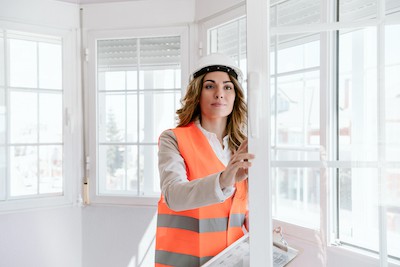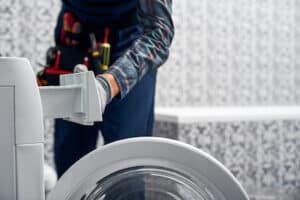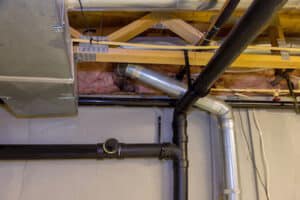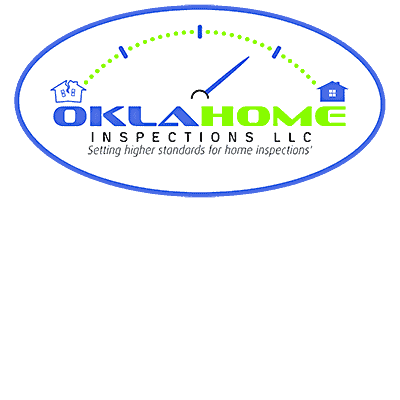
07 Dec What are Good Questions to Ask During a Home Inspection?
You Should Ask These During a Home Inspection
If you’re buying a home, it’s an exciting time! It can also be stressful, especially if you are buying an older home. This is why it’s important to have a professional home inspection done. A home inspection helps ensure that you understand the condition of the home and what needs to be done to keep it in good shape. But how do you get the most out of an inspection and what should you look for? For starters, here are good questions to ask during a home inspection:
- What is the age of the home?
- How well has the home been maintained/updated?
- What condition are the heating and cooling systems in?
- Are there any signs of water damage?
- Is there any asbestos, mold, or lead present?
- What condition are the electrical and plumbing in?
We will get into why these questions are important and how the answers can help you make a better decision when you buy your home so keep reading to learn more!
Age Of The Home- Why It Matters
The age of the home is a major factor to consider when buying or selling a property. Just because a home is old- doesn’t always mean it is in poor condition, however. Many older homes have been well maintained and updated over time, so it’s important to ask this question during the home inspection. Knowing the age of the home will help you better assess the condition and value of a property.
This information will also clue you in on what types of repairs may be necessary or expected in the near future. For example, an aging roof could cost thousands to replace and should factor into your decision-making process when it comes to negotiating a purchase price.

Maintained Or Updated Over The Years?
When buying a home, it’s important to consider how well the property has been maintained over the years. Professional home inspections are a great way to see how the home has been cared for. During the inspection, you can look for signs of remodeling or updates and check that they were done properly. You will also want to ask about the condition of the paint, flooring, windows, and more. Don’t forget to check the exterior and yard as these can be telltale signs of neglect over time.
These are all key indicators of how well a home has been taken care of over the years. If basic maintenance has been neglected, this could add up to costly repairs in the future. And if DIY updates have been made, you’ll want to make sure they were done correctly or they could be a hazard or turn into an even costlier fix later on.
Condition Of Heating & Cooling Systems
It is important to ask the inspector about the condition of the heating and cooling systems. You should also inquire about energy efficiency levels, as this can make a difference in your energy bills over time. Additionally, if you are considering buying an older home, it might be necessary to replace or upgrade these systems.
You should be aware that it isn’t uncommon for older homes to not have AC, so if that is important to you then you should ask the home inspector about it. During the home inspection, you should also make sure the HVAC system is functioning properly and that all safety precautions have been taken.
Being comfortable indoors during your time spent in that home, no matter the season should never be underestimated! Knowing that the heating and cooling systems are in good condition will help you relax and enjoy your new home.

Signs Of Water Damage
Water damage is one of the most common issues that homeowners face, especially those buying an older property. It’s important to ask about any signs of water damage during a home inspection. This can include things like cracked or peeling paint on the walls or ceilings, discoloration of flooring and/or carpets, bulging walls, and more.
If signs of water damage are present during an inspection, it is important to ask the home inspector for an estimate of repair costs so that you can factor this into your decision-making process when purchasing a home. The home inspector should also be able to identify where the water is coming from and how to stop it.
Testing For Asbestos, Mold & Lead
Another important question to ask during a home inspection is if there is any asbestos, mold, or lead present in the home. If these materials are found, they can be extremely costly and dangerous to remove. An asbestos inspection should always be done before you move into a home, as asbestos can be very hazardous to your health.
Mold and lead are also potentially dangerous materials that should be handled with care. An inspector will be able to test for these substances and provide advice on the best course of action if they are found. Inspectors generally recommend taking preventive action on any suspected lead paint or asbestos to minimize risk to future occupants. To ensure that no corners are cut in detecting these dangerous contaminants, it’s essential to hire a qualified professional who understands both the danger and how to address it safely.
Condition Of Electrical And Plumbing
When it comes to questions about the condition of the electrical wiring and plumbing in a home, it’s best to ask them during a home inspection. A certified professional inspector can provide an unbiased assessment of issues that may exist within these systems. They will check the home against local building codes to ensure all wiring and piping is in good condition and up-to-date.
Additionally, they will be able to answer questions regarding furnace and air conditioning efficiency, inspect any indoor air quality components, evaluate insulation levels, and point out any potential water damage or hazards related to faulty wiring or plumbing. It’s important to have this information beforehand so you know exactly what you’re getting into with your purchase! Electrical and plumbing updates can be expensive and should be taken into consideration when deciding on a home.

Conclusion
When purchasing a home, it’s important to be aware of what needs to be taken into consideration beforehand. Home inspections can provide valuable information about the condition of the home that can help you make an informed decision when it comes time to make an offer. It is important to consider things like how well-maintained or updated the home has been, the condition of the electrical wiring and plumbing, and any potential hazards present in the home that could be costly or hazardous to repair. Taking the time to ask questions during a home inspection ensures that there aren’t any unpleasant surprises lurking down the line. Investing in the knowledge of a certified professional inspector will save you time, money, and hassle! Thank you for reading our article, please share!
Related Questions
Who pays for a home inspection?
Typically the home buyer pays for the home inspection, but it is sometimes included in the seller’s closing costs. It is also possible to negotiate who pays for a home inspection between buyers and sellers as part of an offer.
What kind of items should be inspected during a home inspection?
A certified professional inspector will inspect all major components of the home, including the roof, foundation, walls and windows, electrical systems, plumbing systems, heating, and air conditioning systems, insulation levels, indoor air quality components, and any necessary pest or mold control. They should also provide advice on how to maintain each system in order to keep it functioning properly.
How long does a home inspection take?
A typical home inspection usually takes between two and three hours, depending on the size of the home. The inspector will examine all major components of the house and provide detailed reports of their findings.




Sorry, the comment form is closed at this time.